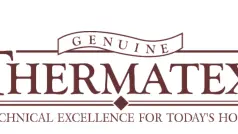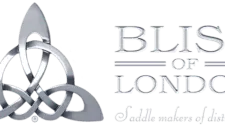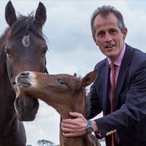The research was commissioned by World Horse Welfare (WHW), an international charity that strives to support and improve the horse-human partnership, and these results presented during their online panel discussion with leaders from different horse sports.
There has been much discussion on the public’s perception of the use of horses in sport, and WHW has been leading collaborative discussions with international experts to help determine what equestrian sports can, and need, to do to maintain their social licence to operate.
Over 2000 adults, representative of the UK population in terms of gender and socio-economic background, participated in the survey.
The vast majority (94%) of respondents had little or no recent contact with horses and 45% had never had any contact with horses.
Key findings were:
- Two in five (40%) only supported the continued involvement of horses in sport if their welfare is improved, while 60% said there should be more safety and welfare measures in place in horse sports.
- 16% felt their confidence in protection of horse welfare in sport had been impacted negatively over the past 2-3 years in response to media coverage.
- Over half (52%) felt that horse welfare should be prioritised more in communications.
- One in five (20%) did not support the continued involvement of horses in sport under any circumstances.
“This is the first survey we have undertaken on this important subject, and the findings should be a wake-up call to everyone involved in equestrian sports that they are not as trusted with horse welfare as they need to be to maintain public support. I am afraid that the results of our survey reflect the reality of the UK public’s perception of welfare in horse sport but we can and must turn this around.
“As a charity that supports the responsible involvement of horses in sport we are, today, bringing together leaders in racing, polo and equestrianism to encourage a deeper conversation on how the different equestrian sports can work better together to address this issue and ensure the long-term sustainability of their respective activities.
“Horse sport can rebuild that trust with the public and maintain support – its social licence to operate – and have a bright future, but only if it opens itself to change. We look forward to having these conversations and importantly, seeing action.”
Five leading figures in British equestrian sport debated these findings and the issue of ‘Social Licence’ in equestrian sport during an online event at which both the media and key equestrian sporting bodies were present.
- Madeleine Campbell, Senior Lecturer in human-animal interactions and ethics, RVC;
- Pippa Funnell MBE, Olympic eventer;
- Dr Barry Johnson, Chair of British Racing’s Horse Welfare Board;
- Christian Landolt, Dressage rider and eventer, trainer and FEI ground jury member;
- David Morley, Chair of the Hurlingham Polo Association Pony Welfare Committee.
For one hour, the panel considered areas equestrian sport might look at to improve the horse-human partnership and the public understanding of it.
In his opening statement, Owers remarked that while it will always be difficult to change the minds of that 20% who don’t want horses in sport, attention should be focused on the other 80%.
The discussion was recorded and is published on the WHW YouTube channel.
All panelists agreed the need for a cohesive approach, with more collaboration and interaction between the different codes and sectors of what is a fragmented horse industry. A large portion of the meeting was dedicating to brainstorming ideas for moving forward, and answering questions from the floor:
– There is a need for more education of riders, and perhaps riders should be required to pass a test before they are eligible to compete.
– The role of stewards and officials in monitoring welfare and safety at competitions is limited because of how many arenas are in operation at events, particularly at the lower levels. A solution proposed is for the more experienced riders to take on a formal role at events for managing social licence issues, guiding and advising the less experienced participants.
– A greater effort could be made to showcase to the public the behind-the-scenes and at home lives of horses in sport and riding schools, by featuring in the media the different members of their care team, such as grooms, farriers, therapists, vets, etc.
– All agreed that more needs to be done on communicating the human-horse partnership and benefits to the horses from being involved in sport.
– There’s a need for transparent and structured decision making at the regulatory level, such as using the ethical framework. Currently sports have different rules and the reasons or basis for this may not be based on evidence and this can erode public trust.
– Regular, formal and transparent use of welfare assessment monitoring tools enable demonstration to the outside world and can track welfare state over time, leading to more accurate and credible assessments of quality of life.
More information can be found at www.worldhorsewelfare.org





